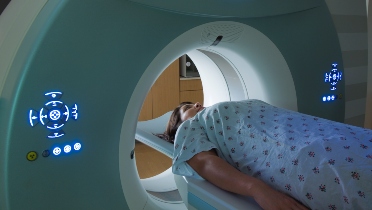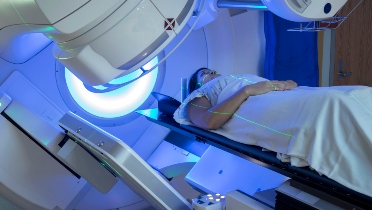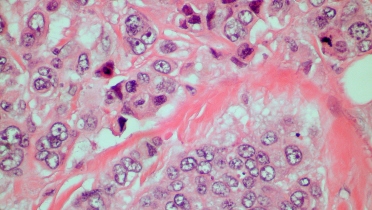ASCO Updates Guidelines for Patients with HER2+ Breast Cancer and Brain Metastasis
ASCO recently issued updated recommendations for the treatment of patients with HER2+ breast cancer and central nervous system metastases. The guidelines, published in the Journal of Clinical Oncology, include directives for local and systemic therapeutic approaches for these patients and recommendations for the appropriate employment of magnetic resonance imaging.
Overexpression of HER2 is common among patients with breast cancer, and the presence of the protein is associated with an increased risk for brain metastases. The likelihood of brain metastases increases for patients with metastatic disease and those with residual disease following neoadjuvant therapy. The growing number of systemic therapies designed for metastatic disease has improved survival outcomes for these patients.
The authors tailored their recommendations to the level of metastatic disease. Options for patients with a single metastasis and favorable prognosis include surgery and postoperative radiotherapy, stereotactic radiotherapy without surgery, whole-brain radiotherapy with memantine and hippocampal avoidance, and hypofractionated stereotactic radiotherapy.
When appropriate, clinicians could offer systemic therapy to patients with asymptomatic metastases, taking into consideration factors including size, symptom burden, and resectability. Serial imaging was recommended at an interval of 2-4 months following treatment as surveillance for local recurrence or the development of new brain disease.
For patients with limited metastases—defined as between two and four metastases—and favorable overall prognosis, the authors recommended that large, symptomatic lesions be resected, followed by radiotherapy. Other options included: stereotactic radiotherapy directed as smaller lesions; stereotactic radiotherapy with whole-brain radiation plus memantine and hippocampal avoidance; hypofractionated stereotactic radiotherapy; and whole-brain radiation plus memantine and hippocampal avoidance, with or without stereotactic radiotherapy, for inoperable large lesions (> 3-4 cm).
Treatment of patients with multiple larger lesions (3-4 cm) should be guided by the extent of resectability and the severity of symptoms. Options to consider for these patients include surgical resection and postoperative radiotherapy; stereotactic radiotherapy; and whole-brain radiation, memantine and hippocampal avoidance, with or without stereotactic radiotherapy. Systemic therapy can be considered for some patients with asymptomatic metastases.
The authors recommended stereotactic radiotherapy or whole-brain radiotherapy with memantine and hippocampal avoidance for patients with a more favorable prognosis despite diffuse disease or extensive metastases. Options for those with a poor prognosis included whole-brain radiotherapy with memantine and hippocampal avoidance, supportive care, and palliative care.
The authors recommended stereotactic radiotherapy, surgical treatment, and whole-brain radiotherapy for patients with progressive intracranial metastases after initial radiotherapy. Other options for these patients included clinical trial enrollment and palliative care, based on prior treatment and prognosis.
Reference:
https://ascopubs.org/doi/full/10.1200/JCO.22.00520?bid=173603842&cid=DM10595
Disclosures: Some authors declared financial ties to drugmakers. See full study for details.
Photo Credit: Getty Images.
By Cameron Kelsall, MD /alert Contributor
















.jpg)
.jpg)

.jpg)
.jpg)
.jpg)


.jpg)

.jpg)
.jpg)
.jpg)
.jpg)
.jpg)

.jpg)
.jpg)

.jpg)
.jpg)
.jpg)
.jpg)
.jpg)


.jpg)
.jpg)

.jpg)
.jpg)
.jpg)
.jpg)

.jpg)
.jpg)
.jpg)

.jpg)


.jpg)
.jpg)
.jpg)
.jpg)
.jpg)
.jpg)

.jpg)



.jpg)

.jpg)

.jpg)
.jpg)

.jpg)
.jpg)
.jpg)
.jpg)

.jpg)
.jpg)
.jpg)
.jpg)

.jpg)
.jpg)
.jpg)
.jpg)

.jpg)
.jpg)

.jpg)
.jpg)
.jpg)
.jpg)
.jpg)
.jpg)
.jpg)
.jpg)
.jpg)
.jpg)
.jpg)
.jpg)

.jpg)
.jpg)



.jpg)
.jpg)

.jpg)
.jpg)

.jpg)
.jpg)
_.jpg)

.jpg)
.jpg)
.jpg)
.jpg)
.jpg)
.jpg)
.jpg)
 Featured Breast Cancer Videos
Featured Breast Cancer Videos.jpg)